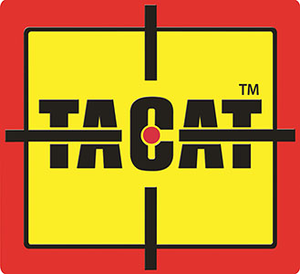Pair in sketchy Navy suppressor deal get light sentences, ‘Club Fed’ assignments

During trial prosecutors explained the Pentagon normally paid $900-$1400 apiece for suppressors from established companies, rather than the $4K paid for each one from the hot rod maker. (Photo: Lance Cpl. Jhonson Simeon/U.S. Marine Corps)
Although guidelines called for up to five years in jail for two men tied to 349 homemade suppressors the Navy paid $1.6 million for, in the end they received far less.
The case drew headlines and wound through the courts for almost three years, involving a former Navy employee and a machine shop owner on trial for their roles in the making and selling of the silencers – which cost just $8,000 to produce – to the U.S. military for grossly inflated prices, which led to charges of conspiracy and theft of government money.
Lee M. Hall, a former civilian employee with the Navy, and Mark S. Landersman, owner of a hot rod shop, were found guilty in 2014 of producing the suppressors without a license and shipping them across state lines in violation of the National Firearms Act.
Hall was a Department of the Navy civilian attached to the Directorate for Plans, Policy, Oversight, and Integration, a little-known office tasked with providing some logistical support for intelligence operations. The resulting scandal led to the resignation of the Deputy Under Secretary of the Navy over the department in 2014 while several officers were reassigned or had their access to classified materials suspended.
Landersman, who owned a custom car shop in Temecula, California, and did not have the required federal licenses to manufacture Title II items, claims the aluminum suppressors were intended to be mounted on a cache of AK-series rifles seized overseas and warehoused in Pennsylvania that have since been destroyed. Throughout the trial it was claimed by defendants the devices were to be used for clandestine operations involving units such as the elite SEAL Team Six.
His brother, David Landersman, who was at the time a senior official in the obscure Navy office that ordered the suppressors, is believed to have turned him on to the no-bid contract to win a $1,657,750 contract for 349 silencers – or the inflated price of $4,750 per silencer – and was charged late last year with his role in the affair.
Although they maintained their innocence since being found guilty in 2014 and have been out on bond, Mark Landersman and Hall were handed sentences of 60 days and six months respectively when they appeared in front of U.S. District Judge Leonie M. Brinkema at the federal courthouse in Alexandria, Virginia, on Friday.
According to sentencing guidelines submitted to the court by prosecutors in the case, Landersman could have received 30 to 37 months in prison while Hall could have received 51 to 63.
In addition, the men were ordered to pay the $1.6 million back to the government in monthly installments of $200-$300 following their jail time and submit to 2-3 years of supervised release.
Despite the relatively light sentences passed Friday, Brinkema has something of a reputation as a hard-nosed judge.
A 1993 appointment by President Bill Clinton who served in the U.S. Attorney’s office and in private practice before coming to the bench, Brinkema gained a bit of notoriety as the judge in the case of al-Qaeda operative Iyman Faris, giving him 20 years imprisonment for providing material support to the group in 2003 which included a plot to destroy the Brooklyn Bridge.
She followed this up by presiding over the case of 9/11 conspirator Zacarias Moussaoui, telling the terrorist he would “die with a whimper” after passing six life sentences without parole on him in 2006.
However, not only did the pair of suppressor crooks catch a break on their sentences, they also landed spots in what are referred to as cushy “Club Fed” prisons noted for their low-security measures and plush accommodations when contrasted against other institutions.
Landersman is set to serve his time at the Federal Bureau of Prisons contract facility at Taft, California while Hall will begin his at Cumberland, Maryland.
Both are minimum security satellite camps with Taft listed as one of the “Best Places to go to Prison” in 2012 and Cumberland referred to by the Washington Post last year as “the go-to for white-collar Washington criminals,” to include disgraced lobbyist Jack Abramoff and former Clinton administration official Webb Hubbell.
The post Pair in sketchy Navy suppressor deal get light sentences, ‘Club Fed’ assignments appeared first on Guns.com.
